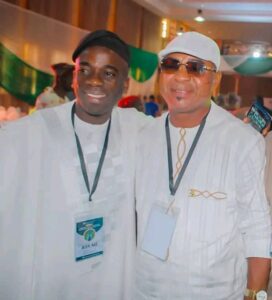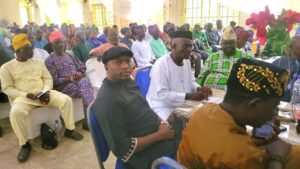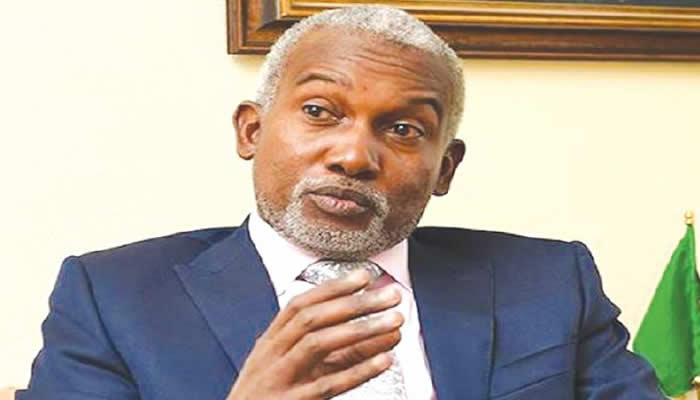
The Minister of Foreign Affairs, Yusuf Tuggar, has called for the elimination of cultural practices that undermine human dignity.
Tuggar also urged the preservation and promotion of positive traditions that reflect modern values.
Speaking on Saturday at the China-Nigeria Culture and Tourism Festival in Abuja, Tuggar, represented by the Director of Foreign Service Reforms and Innovation at the Ministry of Foreign Affairs, Bolaji Akinremi, also stressed the importance of using technology to enhance Nigeria’s cultural and tourism sectors.
“As we celebrate, it is also important to recognise the need to remove harmful practices that do not align with modern values of human dignity, while promoting and preserving the positive aspects of our traditions.
“Equally, we must harness the power of technology to develop our culture, festivals, and tourism sector—whether through digital promotion, cultural documentation, or innovative tourism experiences.
“In addition, attracting sustainable investment into our tourism sites will ensure that they thrive as sources of pride, jobs, and national wealth,” he said.
Tuggar further noted that cultural and tourism festivals offer a unique opportunity for Nigeria and China to deepen mutual appreciation and respect.
“This gathering is not just a celebration of culture, fashion, and tourism, but also a testimony to the strong and friendly relations between Nigeria and the People’s Republic of China, two giants in their respective regions and influential partners in global development.
“Cultural and tourism festivals such as this one offer us unique opportunities to appreciate one another’s values, traditions, and creativity.
“They remind us that while our histories, languages, and heritage may differ, the beauty of cultural exchange is in how it binds people together, fosters mutual respect, and enriches our societies,” he stated.
Highlighting Nigeria’s cultural richness, he pointed to iconic festivals such as the Egungun Festival in the South West, the Durbar Festival in the North, and the Argungu International Fishing Festival in the North West.
“Across the South-South and South East, traditional masquerades, carnivals, and festivals like the Ofala Festival in Anambra or the Calabar Carnival in Cross River continue to tell our unique stories to the world.
“In the same spirit, China’s long history and heritage, expressed through its rich traditions, arts, cuisine, and tourism, are a source of inspiration and learning.
“There are lessons and values to gain when each of us takes time to appreciate the other’s culture and festivals. These exchanges create lasting bridges of understanding, friendship, and cooperation,” he said.
In his remarks, the Deputy Ambassador of the Chinese Embassy in Nigeria, Zhou Hongyou, highlighted the depth of China’s cultural heritage, shaped by over 5,000 years of history and 56 ethnic groups.
He noted, “China and Nigeria are the most age-old and welcome historical and cultural heritage.”
Zhou added that cultural exchanges between both countries “showcase the challenge of people’s economies and reflect the most ignited people who are expected in real life.”
Expressing admiration for Nigerian performances, Zhou remarked, “The performance is hilarious and the special expectations look at the incredible culture of heritage from both countries.”
The event also featured remarks from the Permanent Secretary of the Federal Ministry of Art, Culture, Tourism, and the Creative Economy, Mukhtar Yawale Muhammad, who praised the organisers, including the China Culture Centre in Nigeria, the African Fashion Festival Vogue, and Chinese Tourism Promoters—for their vision in putting together the 2025 edition of the festival.
“Festivals such as this are not just moments of entertainment; they are platforms for cultural diplomacy, creative exchange, and mutual understanding between nations,” Muhammad said.
He added that the celebration allows both countries to explore and appreciate each other’s traditions, cuisines, music, fashion, and artistic expressions. Muhammad further emphasised the economic potential of the cultural and tourism sectors
“We recognise that culture and tourism are not only vehicles of identity and heritage but also powerful drivers of economic growth, job creation, and social cohesion,” he noted.
He affirmed his ministry’s commitment to leveraging cultural and tourism opportunities for sustainable development, saying, “The Federal Ministry of Art, Culture, Tourism, and the Creative Economy is committed to leveraging the power of culture and tourism as catalysts for sustainable development.”
Muhammad also pointed to the potential for further collaboration between China and Nigeria, particularly in areas such as cultural heritage preservation, creative industry development, and tourism promotion.
“We envision more joint projects in areas such as cultural heritage preservation, creative industry development, and tourism promotion,” he said, reaffirming his ministry’s commitment to initiatives that foster international cooperation through culture and tourism.
PUNCH


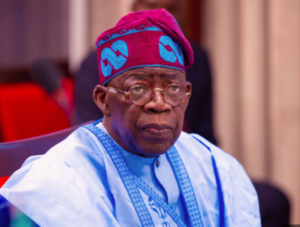
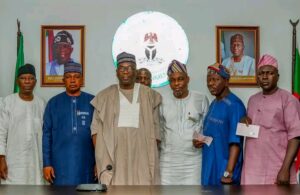
![[PHOTOS] MOK Movement Disburses ₦300,000, Distributes Food Items to the Aged in Offa During Weekly Empowerment Programme](https://newsbulletin.com.ng/wp-content/uploads/2025/10/FB_IMG_1760379043455-300x300.jpg)

